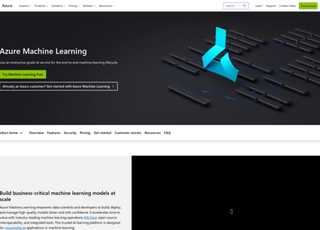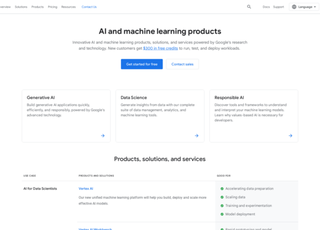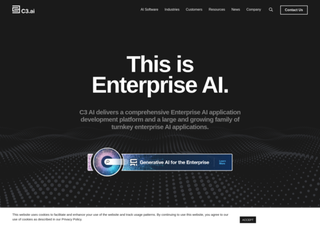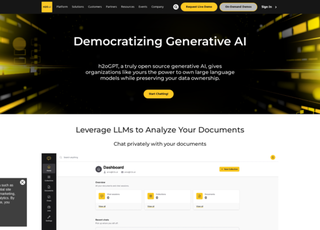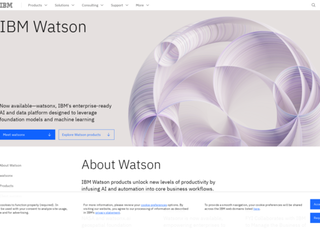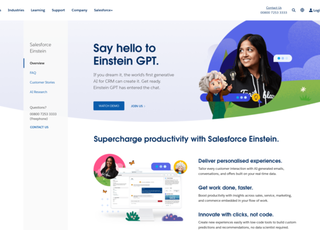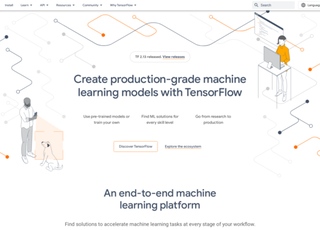Azure Machine Learning
https://azure.microsoft.com/en-us/products/machine-learningAzure Machine Learning
Azure Machine Learning, a cloud-based service from Microsoft, is designed to streamline the process of developing, training, and deploying machine learning models.
Platform Overview
Azure Machine Learning provides a comprehensive platform that supports the entire machine learning lifecycle. This includes data preparation, model development, training, testing, deployment, and monitoring.
User-Friendly Interface
It offers a user-friendly interface with a visual drag-and-drop environment, making it accessible for users with varying levels of expertise. This interface simplifies complex tasks in machine learning, allowing users to build, test, and deploy models without needing extensive coding knowledge.
Integration with Other Azure Services
The service integrates seamlessly with other Azure services, such as Azure Data Factory and Azure Databricks, facilitating an easier workflow for data ingestion, processing, and model deployment.
Scalability and Flexibility
Azure Machine Learning is highly scalable and supports various machine learning algorithms, including supervised and unsupervised learning, deep learning, and reinforcement learning. It can handle large datasets and complex models, scaling resources as needed.
Automated Machine Learning (AutoML)
A standout feature is its AutoML capability, which automates the selection of the best model and tuning of hyperparameters. This is particularly useful for users who may not have in-depth knowledge of machine learning algorithms.
Collaboration and Version Control
The platform supports collaboration among team members, offering version control and project sharing features. This is essential for enterprise-level projects where teams need to work together on large datasets and models.
Training and Deployment
Users can train models using Azure's cloud resources, which offers flexibility in terms of computing power. Once trained, models can be deployed as web services in Azure, allowing for easy integration with applications and services.
Security and Compliance
Azure Machine Learning adheres to Microsoft’s stringent security protocols, ensuring that data and models are protected. It also complies with various industry and regional standards, making it suitable for use in different sectors.
Monitoring and Maintenance
Post-deployment, the service provides tools for monitoring the performance of models in production, and it can alert users to issues like data drift or performance degradation.
Learning and Support
Microsoft offers extensive documentation, tutorials, and community support for Azure Machine Learning, making it easier for newcomers to learn and for professionals to solve complex problems.
Customization and Advanced Options
While Azure Machine Learning is designed to be user-friendly and accessible, it also offers advanced options for experienced data scientists. This includes custom scripting and the use of popular machine learning frameworks like TensorFlow, PyTorch, and scikit-learn. Users can write their own Python or R scripts and integrate them into the Azure ML workflows, allowing for a high degree of customization and control.
Experimentation and Tracking
The platform provides robust tools for experimentation, enabling users to track and compare different models and experiments. This is crucial for understanding the performance and efficacy of various approaches and for making data-driven decisions about which models to deploy.
Model Interpretability and Explainability
Azure Machine Learning places a strong emphasis on the interpretability of machine learning models. It provides tools that help in understanding how models make predictions, which is essential for applications in sensitive industries like healthcare and finance where explaining decisions made by AI systems is crucial.
Data and Feature Engineering
It also offers tools for data and feature engineering, which are critical steps in the machine learning pipeline. Users can preprocess and transform data within the platform, ensuring that models are trained on high-quality, relevant data.
Integration with Open-Source Tools
Azure Machine Learning supports integration with a range of open-source tools and libraries, which is beneficial for those who prefer to use open-source software. This integration enhances its flexibility and allows it to fit into a variety of data science workflows.
Global Availability and Localization
As a cloud-based service, Azure Machine Learning is available globally, which makes it accessible to organizations and users around the world. Microsoft also provides localization and support for various languages, making it easier for a diverse user base to adopt the platform.
Resource Optimization
The platform offers tools for optimizing resource usage, which helps in managing costs and ensuring efficient use of computational power. This is particularly important for training complex models or handling large datasets.
Continuous Updates and Innovations
Being a part of Microsoft’s Azure ecosystem, Azure Machine Learning is regularly updated with new features and improvements. Microsoft invests heavily in AI and machine learning, and users of Azure ML benefit from these ongoing advancements.
Azure Machine Learning is a robust, scalable, and versatile platform that caters to a wide range of machine learning needs. It combines ease of use with the power and flexibility required for complex, large-scale machine learning projects, making it a popular choice for organizations and individuals looking to leverage AI and machine learning.




















